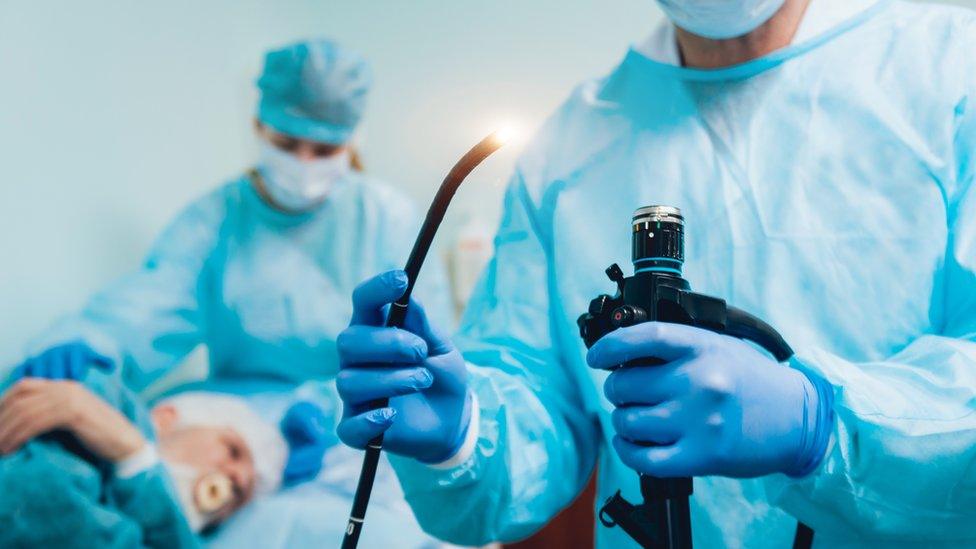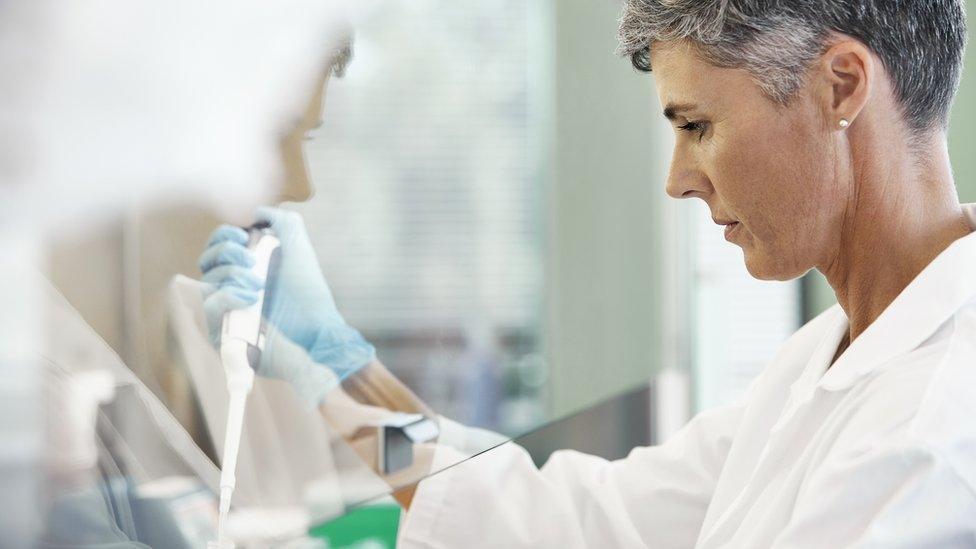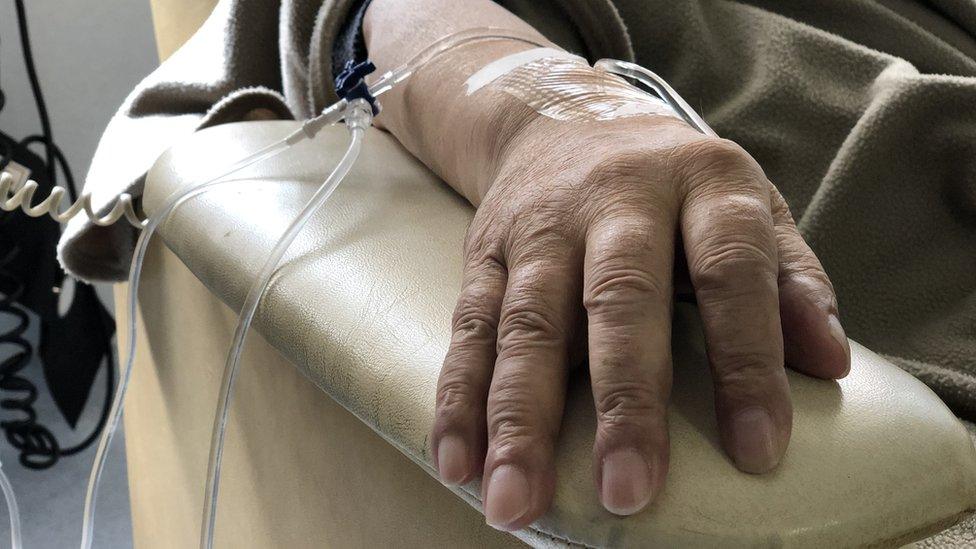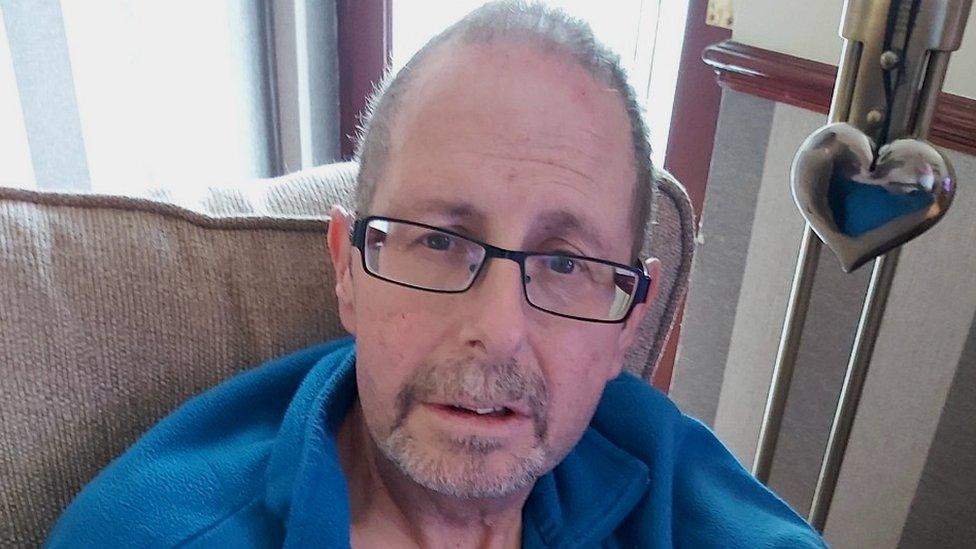Covid in Scotland: Endoscopy waiting list soars by 44.5%
- Published

Endoscopy is a common procedure using cameras to examine tissue and organs inside a patient
The number of patients waiting on an endoscopy in Scotland has increased by 44.5% due to the pressures Covid has placed on the NHS.
Latest Public Health Scotland (PHS) statistics, external showed 31,637 people were waiting on the procedure in December.
They also revealed the percentage who had been waiting 39 to 52 weeks increased from 6.1% to 18.5%.
An endoscopy is among the key diagnostic tests used to detect serious illnesses, including cancer.
The PHS figures for the final quarter of 2020 also showed 100,913 patients were waiting to be seen for at least one of the eight key diagnostic tests, including MRIs, CT scans and non-obstetric ultrasounds.
This number is down slightly (1.8%) on the previous three months but is 15.3% higher (13,370 patients) than the same period in 2019.
Cancer Research UK in Scotland said early diagnosis was vital to give people access to life-saving treatment.
The Scottish government said "cancer services have been, and will remain, a top priority."
'Worrying drop'
Kirsty Slack, the charity's public affairs manager, said: "Overall, the pandemic has led to a worrying drop in the number of people being diagnosed with cancer and starting treatment.
"While services are slowly recovering, we remain deeply concerned about the ongoing backlog of people waiting to receive these crucial tests and get a diagnosis."
She also urged the Scottish government to address "long-standing staff shortages which exist within cancer services".


It's been a year since the NHS started on an emergency footing. At the start all but urgent work was suspended to focus on the treatment of Covid patients. This time, despite many hospitals having more coronavirus cases, health boards have tried to manage some of their ever growing waiting lists.
Hospitals are still busy treating coronavirus patients and some health boards have struggled more than others to get routine work back up and running.
The private sector has been drafted in to do some work, alongside the NHS Louisa Jordan temporary hospital and also the Golden Jubilee hospital, but the reality is that the backlog will continue to grow.
Before the pandemic the government had set out an ambitious waiting times improvement plan to meet key targets by the spring of this year. That has been abandoned and staff are now being asked to prioritise the patients most in need.

Last year the widow of a cancer patient who died three days after getting the results of a delayed endoscopy told BBC Scotland she believed his life could have been extended if he had been examined sooner.
Billy Hughes was waiting for the procedure at Hairmyres hospital in East Kilbride on 2 April when it was cancelled and he was sent home.
But his condition deteriorated and, a month later, his case was finally classed as an emergency.
He died days after finally getting the results of the examination in May.
In November it emerged the number of people diagnosed with cancer fell by 40% at the start of the the pandemic.
Earlier this month charity, Cancer Support Scotland, said it was starting to see patients who were diagnosed late as a result of Scotland's first coronavirus lockdown.
They warned the delay in diagnosis would lead to people dying earlier because services had been paused.
'Catching up must be priority'
Lewis Morrison, chairman of BMA Scotland said "NHS recovery must become synonymous with staff recovery".
He added: "Of course, patients must continue to get the healthcare they require in a timely fashion.
"But in the post-pandemic period we need everyone to be realistic about what timely means for some non-urgent conditions.
"If we allow NHS staff to simply be driven even harder to deal with backlogs and waiting lists, then we risk breaking them and losing their contribution to the NHS for good."
A spokesman for the Royal College of Physicians of Edinburgh said: "We would urge people who need medical advice to attend their GP, or if more urgent or emergency care is needed, to go to A&E.
"Delays in diagnosis and treatment can be deeply distressing for patients, so catching up must be a top priority for the Scottish government during the health service recovery phase."
He added that the catch-up effort had to be balanced with "the emotional and physical effects on the workforce".
A Scottish government spokesman said: "Throughout this period health boards have been working hard to ensure that vital care remains in place where clinically agreed, in-line with the framework developed by our clinical advisers, and each board has also provided detailed plans for the recovery, remobilisation and redesign of key services through to March 2021."


- Published18 November 2020

- Published29 September 2020

- Published17 July 2020
